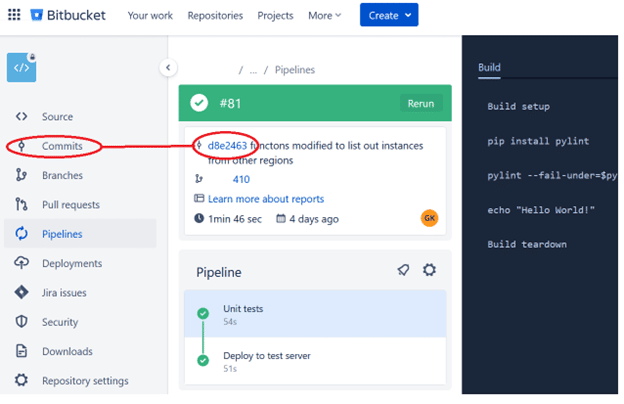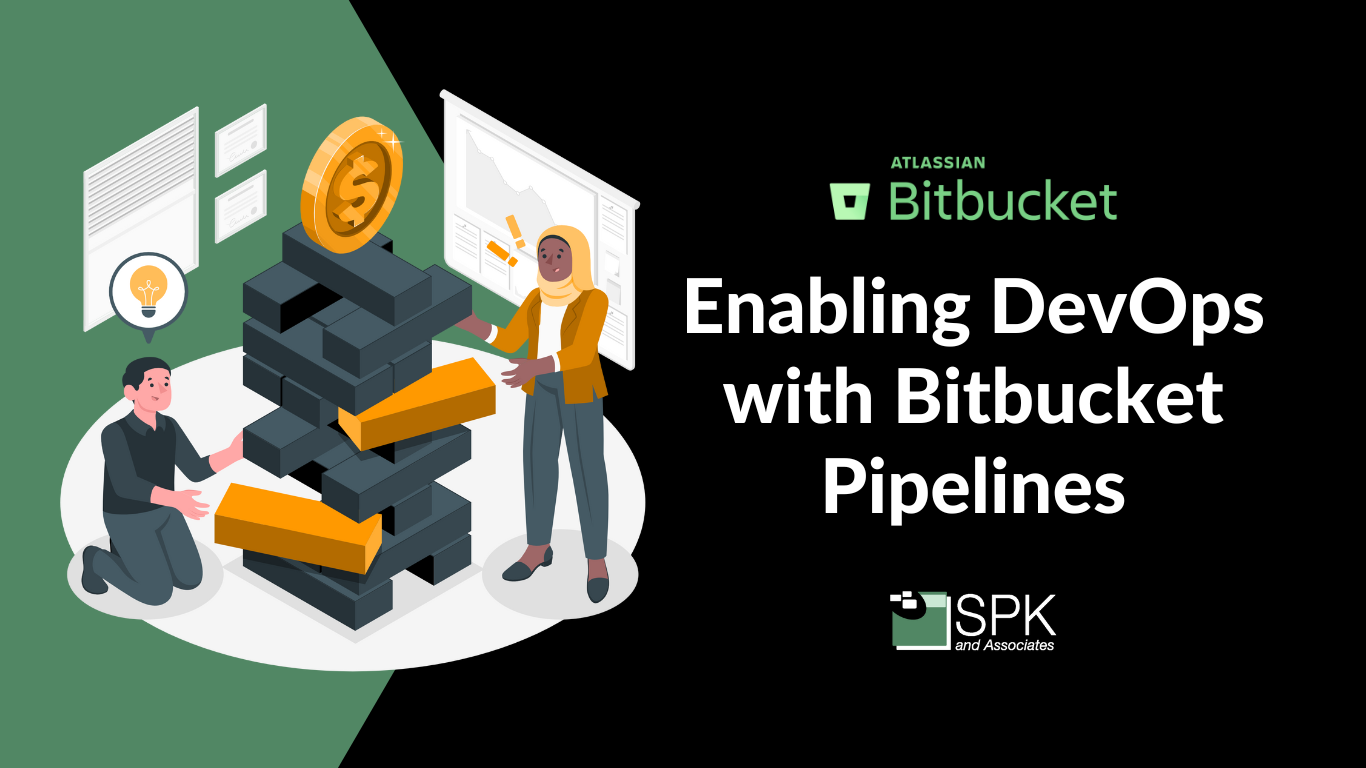We’re familiar with how computing has evolved throughout the years. On-premises servers have shifted to the cloud. And, cloud providers now offer a higher level of services and applications. Additionally, software build processes also experienced a similar evolution. Previously, the Hudson or Jenkins application was installed on a physical server in a data center. And with the shift to cloud, Jenkins slaves could be easily provisioned and scaled as needed. But, Bitbucket pipelines are the next step in this evolution. Below, you’ll see how Atlassian Bitbucket Pipelines and DevOps practices can accelerate your overall product development process.
The Basics of Atlassian Bitbucket Pipelines
Atlassian describes Bitbucket Pipelines as:
“An integrated CI/CD service built into Bitbucket. It allows you to automatically build, test, and even deploy your code based on a configuration file in your repository.”
Essentially, Atlassian creates containers in the cloud for you. And, within these containers, you run commands, similar to on a local machine. However, you also have all the advantages of a fresh system that is customized and configured for your needs.
Read more about getting started with Atlassian Bitbucket Pipelines, understanding the YAML file, and configuring your first Pipeline here.
Reduced Administrative Overhead
Now, with Atlassian Bitbucket Pipelines, there are no:
- Infrastructure to manage.
- Servers to maintain.
- Operating Systems to patch.
- Applications to keep updated.
Comparatively with traditional build systems, you have a master or orchestration server. Additionally, you have to build slaves where the agent software must be maintained. So, organizations can refocus the time saved on software development instead.
Atlassian Bitbucket Pipelines Create Unlimited Scalability
Jenkins on the cloud is powerful. You have access to almost limitless resources. Thus you can support any number of simultaneous builds. However, the cost comes in the form of complexity, supportability, and reliability. Firstly, you must pick an auto-scaling approach, whether that’s via EC2 fleet or Jenkins Swarm plugins. Next comes the configuration. Finally, you need to ensure it runs without issue 24/7.
Instead, Bitbucket Pipelines spawns a separate docker container per build. So, you don’t have to worry about the placement of this container. It is managed automatically.
Lower Risk / Increased Security
Now, take into perspective the reduction of infrastructure and software components with Atlassian Bitbucket Pipelines compared to Jenkins. It is apparent the attack surface is cut by a fraction. That means it can improve an organization’s security posture. Particularly when the company’s product is the built software.
Another example is that there are over 200 CVEs published for Jenkins. It is an open-source software that must be closely monitored. And, when new vulnerabilities are published, organizations must update their entire Jenkins build servers and slaves fleet.
Deep integration with Bitbucket SCM
With Bitbucket, Pipelines are deeply integrated into the product. Each Pipeline has a link back to the commit which was the trigger. From any commit, you can view a summary of how many Pipeline builds have run successfully. Also, you can also trigger a new Pipeline build to run.
Atlassian Bitbucket Pipeline configurations are stored alongside your code. That means:
- The Pipeline configurations are revisioned.
- They can be directly tied to every change in your code. So, troubleshooting broken builds is much simpler.

Are Bitbucket Pipelines Cost-Effective?
Bitbucket Pipelines are priced per chunk of minutes. With a premium license, 3500 build minutes are included each month. Ultimately, this ends up being more cost-effective versus running an equivalent of five EC2 servers per month:
Conclusion
Atlassian Bitbucket Pipelines are the next evolution for easy provisioning and scalability within your product development lifecycle. Essentially, they are an integrated CI/CD service built into Bitbucket and Atlassian creates containers in the cloud for you. When comparing to open-source Jenkins, they require less monitoring and pose lower risk. Additionally, Atlassian Bitbucket Pipelines also increase security and are deeply integrated into the product with configurations stored alongside your code.
SPK is an official Atlassian partner and experts with this tool. If you would like support with Bitbucket Pipelines, we offer implementation or Managed Services solutions, tailored to your needs. Contact us here.






